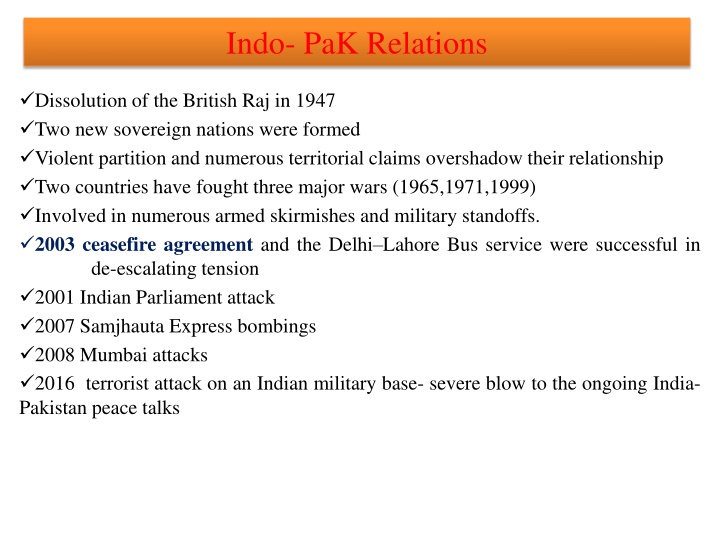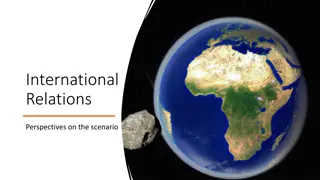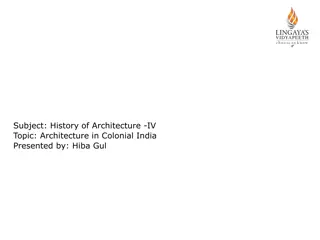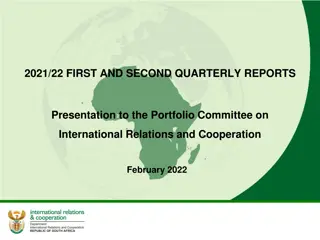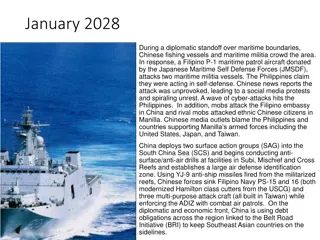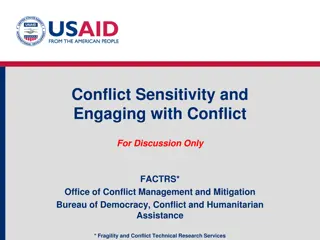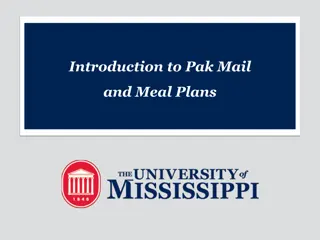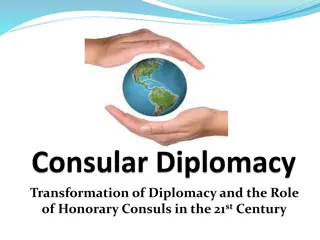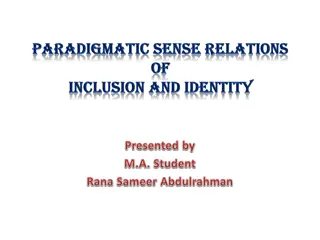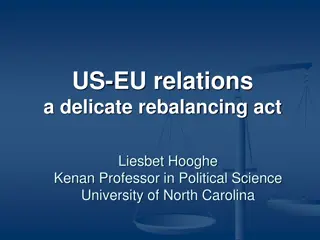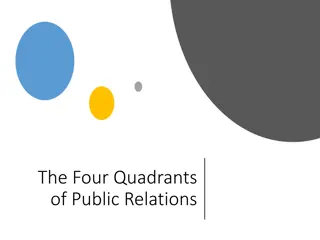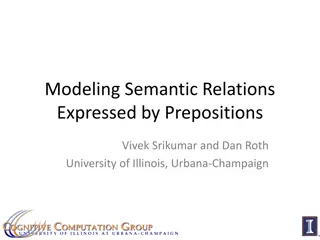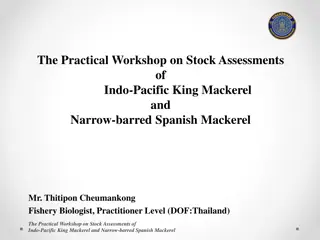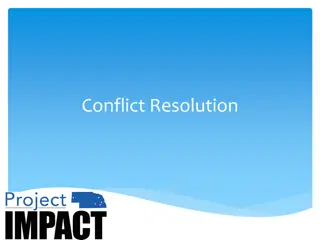Indo-Pak Relations: A History of Conflict and Diplomacy
Indo-Pak relations have been marred by violence and territorial disputes since the dissolution of the British Raj in 1947. The Kashmir conflict, three major wars, and numerous skirmishes have shaped their tumultuous relationship. Despite efforts like the 2003 ceasefire agreement and diplomatic agreements, peace talks have faced setbacks due to events like the 2001 Indian Parliament attack and the 2016 terrorist attack on an Indian military base.
Uploaded on Feb 26, 2025 | 0 Views
Download Presentation

Please find below an Image/Link to download the presentation.
The content on the website is provided AS IS for your information and personal use only. It may not be sold, licensed, or shared on other websites without obtaining consent from the author.If you encounter any issues during the download, it is possible that the publisher has removed the file from their server.
You are allowed to download the files provided on this website for personal or commercial use, subject to the condition that they are used lawfully. All files are the property of their respective owners.
The content on the website is provided AS IS for your information and personal use only. It may not be sold, licensed, or shared on other websites without obtaining consent from the author.
E N D
Presentation Transcript
Indo- PaK Relations Dissolution of the British Raj in 1947 Two new sovereign nations were formed Violent partition and numerous territorial claims overshadow their relationship Two countries have fought three major wars (1965,1971,1999) Involved in numerous armed skirmishes and military standoffs. 2003 ceasefire agreement and the Delhi Lahore Bus service were successful in de-escalating tension 2001 Indian Parliament attack 2007 Samjhauta Express bombings 2008 Mumbai attacks 2016 terrorist attack on an Indian military base- severe blow to the ongoing India- Pakistan peace talks
Seeds of conflict Kashmir conflict Kashmir was a Muslim-majority princely state, ruled by a Hindu king, Maharaja Hari Singh Ruler of the state, preferred to remain independent and did not want to join either two. Despite the standstill agreement with Pakistan, Pakistani forces were dispatched into Kashmir - "Operation Gulmarg" to seize Kashmir Maharaja turned to India and requested India for troops to safeguard Kashmir Maharaja advised to sign Instrument of Accession before India could send its troops. (26 October 1947) Indian troops were airlifted from Delhi, on 27 October 1947 Indian troops managed to evict the aggressors from parts of Kashmir But the onset of winter made much of the state impassable. Declared a ceasefire and sought U.N. arbitration with the promise of a plebiscite north-western Kashmir-Azad Kashmir- PoK Line of Control (LoC) military control line between the Indian and Pakistani SimlaAgreement, signed on 3 July 1972
War of 1965 started following Pakistan's Operation Gibraltar designed to infiltrate forces into Jammu and Kashmir to precipitate an insurgency against rule by India ended in a United Nations (UN) mandated ceasefire and the subsequent issuance of the Tashkent Declaration War of 1971 geo-politically divided into two major regions, West Pakistan and East Pakistan East Pakistan was occupied mostly by Bengali people. 13 days after the invasion of East Pakistan, 90,000 Pakistani military personnel surrendered to the IndianArmy After the surrender of Pakistani forces, East Pakistan became the independent nation of Bangladesh. Kargil War During the winter months of 1998-99, the Indian army vacated its posts at very high peaks in Kargil sector in Kashmir as it used to do every year. Pakistani Army intruded across the line of control and occupied the posts
Main Agreements Signed Indus Waters Treaty:960 by Prime Minister of India Jawaharlal Nehru and President of PakistanAyub Khan. Tashkent Declaration was a peace agreement between India and Pakistan signed on 1966 that resolved the Indo-Pakistani War of 1965. Lal Bahadur Shastri and Pakistani President Muhammad Ayub Khan Simla Agreement was signed between India and Pakistan on 2 July 1972 in Simla Zulfiqar Ali Bhutto, the President of Pakistan, and Indira Gandhi, the Prime Minister of India Lahore Declaration was a bilateral agreement 1999-Nawaz Sharif and Prime MinisterAtal Bihari Vajpayee signed the treaty
